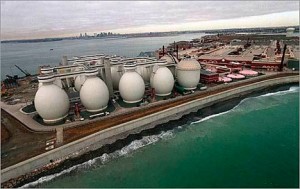Bioctane
Introduction
Bioctane Limited has developed a game-changing technology which converts human waste and other organic hydrocarbon wastes into 100 octane fuel. Bioctane takes a plentiful waste product that is hazardous and expensive to dispose of and converts it into a highly-valued and widely-used commodity, for less than the cost of its fossil-based competitors.
The process takes blackwater and more concentrated sewage sludge and after a pre-treatment for cleaning toxins unwanted hydrocarbons, and heavy metals, the bioctane reactor then treats the sewage using an electrochemical process reforming the molecules into octane – C8H18 which is the major component of petrol as iso-octane.
The initial goals of Bioctane are to prove the technology by building a demonstrator plant which will allow the company to optimise the process and prove its efficacy, protect its intellectual property worldwide, and thereafter to build a commercial-scale ten tonne per hour reference plant producing over 50m litres of fuel per annum, before licensing the technology worldwide.
The Problem
There are many drivers behind Bioctane’s goal to prove and licence this world-changing technology, nearly all of which are environmental but to such an extent and of such importance that these also become strategically geopolitical.
• The disposal of human waste is an expensive process, but vital to the continued health and well being of people as well as the environment in which they live and depend upon; a system that could treat this waste and turn it into high octane fuel would be accurately described as disruptive. Cryptosporidium from sewage is again on the increase in parts of Scotland and other countries.
• It has been shown that fossil fuel usage, particularly for transport and heating, are responsible for climate change. To ameliorate the position, all major governments are committed to reducing their nations’ carbon footprints over time, with the first major deadline looming in 8 years, and the final deadline in fewer than 50. Although using subsidies and incentives to producers of renewable energy has been the chosen instrument to increase market share of renewables, even this is not working, and most nations are very far away from meeting any of their renewable obligation targets.
• Fossil fuels in the form of crude oil are becoming more difficult to extract and accordingly more expensive.
• It has been shown that quality of life is directly linked to resource availability and usage, and if the developing world is to enjoy quality of life comparable to the West without causing unacceptable environmental problems, a new modus operandi must be sought.
• The disposal of human waste is an expensive process, but vital to the health and wellbeing of people; a system that could treat this waste and turn it into high octane fuel would be accurately described as disruptive.
• Bioctane represents the most efficient way of using such waste streams to produce liquid energy.
If you require consultancy services or further information please click here.



